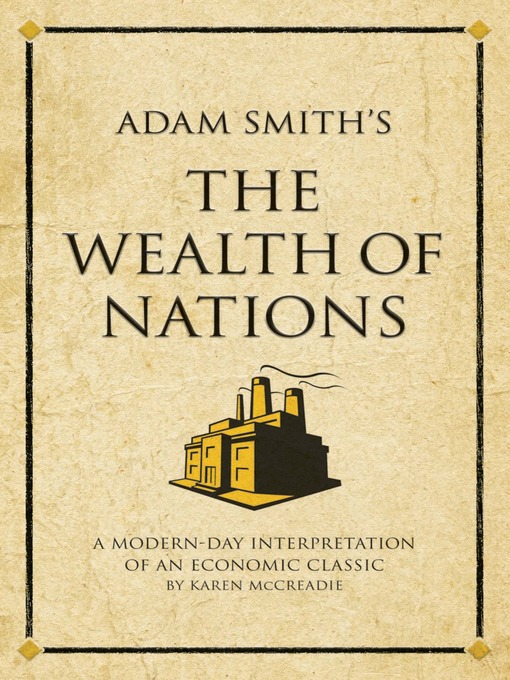Capitalism’s problems and the environment
Many people concerned about the environment call to overthrow capitalism. This view seems extreme.

Others say capitalism is the answer to most problems, including the environment. This view seems equally extreme.
In particular, everyone has long known of several problems inherent to a capitalist economic system.
Where democracy — a political system — has regulated capitalism, societies seem to thrive. I don’t see an absolute right, wrong, good, bad, or evil to the extent a society regulates capitalism. I support rules enacted through a democratic process that the people they affect consider fair enough to keep it going.
To pick an extreme example, Wikipedia’s description of a free market, “In a free market, the laws and forces of supply and demand are free from any intervention by a government or other authority and from all forms of economic privilege, monopolies and artificial scarcities,” suggests that any laws, including outlawing murdering competitors, would infringe on a free market.
I support laws preventing murder, however much they’d infringes on the freedom of markets. As far as I know, everyone I know agrees, though I understand the mafia competes partly including murder. I don’t think the market should be so free and am glad that nearly every community I know of supports that legislation (North Korea seems to allow it for some people, which I don’t support).
I conclude that the question is not should we regulate capitalism but how and how much. It seems to me that either you allow murdering the competition or you agree. And I believe that the way to to decide is through democratic processes that the people regulated consider fair.
[EDIT: please note the reader’s comments and my response below, which are relevant to this post.]
Capitalism’s problems
What problems does capitalism contain that merit legislation?
Issues like murder that I believe nearly everyone considers more important than economics, I’ll leave aside. You could call a lack of values a problem with capitalism, as many do, but everyone legislates them before legislating capitalism anyway.
Besides, those issues seem independent of capitalism, not inherent to it. If we hunted and gathered without using or needing private property, I expect we’d still make laws against murder, fraud, and such.
The big ones that seem endemic to capitalism are
- Monopolies
- Debt slavery
- Overproduction
Monopolies
Capitalist markets seem unstable to forming monopolies and monopolies seem unstable to grow, extend to other markets, lead to higher prices and loss to the public. Adam Smith, in the Wealth of Nations, wrote, “People of the same trade seldom meet together, even for merriment and diversion, but the conversation ends in a conspiracy against the public, or in some contrivance to raise prices.”
We’ve created remedies to monopolies. According to Wikipedia’s article on Competition Law — what in the U.S. we call anti-trust law — “The history of competition law reaches back to the Roman Empire. The business practices of market traders, guilds and governments have always been subject to scrutiny, and sometimes severe sanctions. Since the 20th century, competition law has become global.”
Monopolies are a problem, but one we’ve developed ways to manage. You may consider the present implementations to lax, stringent, or other, but we have solutions.
Debt slavery
If I lend you more than you can repay and the punishment for you not repaying me is severe enough — say, prison until you repay me, which is impossible to do from jail, so a lifetime prison sentence — I can control you. If I can keep you from earning enough to repay me, I have effectively and legally enslaved you.
According to Wikipedia:
“debt bondage is the most common method of enslavement with an estimated 8.1 million people bonded to labour illegally as cited by the International Labour Organization in 2005. Debt bondage has been described by the United Nations as a form of “modern day slavery” and the Supplementary Convention on the Abolition of Slavery seeks to abolish the practice.
The practice is still prevalent primarily in South Asia and Sub-Saharan Africa, although most countries in these regions are parties to the Supplementary Convention on the Abolition of Slavery. It is predicted that 84 to 88% of the bonded labourers in the world are in South Asia. Lack of prosecution or insufficient punishment of this crime are the leading causes of the practice as it exists at this scale today.”
Laws against slavery, I categorize with issues greater than capitalism. We further limit capitalism with bankruptcy laws.
Again quoting Wikipedia on bankruptcy,
“In Ancient Greece, bankruptcy did not exist. If a man owed and he could not pay, he and his wife, children or servants were forced into “debt slavery”, until the creditor recouped losses through their physical labour. Many city-states in ancient Greece limited debt slavery to a period of five years; debt slaves had protection of life and limb, which regular slaves did not enjoy. However, servants of the debtor could be retained beyond that deadline by the creditor and were often forced to serve their new lord for a lifetime, usually under significantly harsher conditions.”
For centuries we’ve used bankruptcy to help solve this problem. Debt slavery is a problem, but one we’ve developed ways to manage. You may consider the present implementations to lax, stringent, or other, but we have solutions.
Overproduction
The more I sell, the more money I make. The more I produce, the more I sell. If I produce more than I sell and the costs of extra production and disposing of the waste are smaller than the extra profit, I gain.
What’s the problem?
When human population and its needs were small relative to Earth’s resources and the effect of the waste was limited, there was no problem. A community that ran out of resources — water, space, clean air, fish, etc — could move to find new ones. Grow too many apples and they might rot, but they’d turn into compost.
Today, human population has, as far as I know, overshot Earth’s capacity to sustain the population at its current rate of consumption with renewable resources, meaning in a global sense, we can’t move to find new resources. We may find more fossil fuels, but they will run out. We may clean the air or water here or there, make some process more efficient, or the like, but the overall pattern is clear: overproduction in one place hurts someone.
Waste is no longer benign. Plastic takes centuries to break down and poisons life in the meantime. Mercury, greenhouse gases, dioxin, PCBs, and so on lower Earth’s capacity to sustain life and human society.
We’ve solved some cases of overproduction locally but not globally. For example, privatizing some resources keeps people from overusing them. Other legislation has helped other cases — I think of police protecting Central Park from litter and vandalism, maintaining its somewhat natural beauty, or our national parks.
Unlike monopolies and debt slavery, we haven’t solved overproduction systemically. In cases like overgrazing, privatization helps, though not always. In cases of waste that pollutes, some laws have helped, though not always. All cases that I know of to treat overproduction are local — that is, imposed by communities on themselves.
What about when the costs and waste affect people outside the community that benefits from the overproduction and waste? Globally, we haven’t solved overproduction. On the contrary, many of our environmental problems result from a problem inherent to capitalism that we don’t know how to solve, partly because we never had to try.
We could always move away from the problem. We never had to live with it, unable to move away. Past solutions, like moving to new places don’t work when it means escaping the planet.
More of a problem won’t solve a problem
Since our environmental problems result from inherent properties of capitalism, the more we practice capitalism as usual, beyond not solving the problems, we augment them.
That means that all the entrepreneurs, investors, educators, makers, and tinkerers looking to solve the problems of overproduction by producing new things are doing what created the problem. They are exacerbating the problem, as you can tell by our markets and systems becoming more efficient than ever and producing more total waste than ever.
It happened with the steam engine. It’s happening with global culture. Market-based “solutions” don’t work when the market is the problem.
The knee-jerk reaction to conclude that I’m suggesting we trash capitalism would make you the extremist you might claim I am. Bankruptcy legislation helps solve debt slavery and anti-trust (competitive) legislation helps solve monopolies.
Because we haven’t solved overproduction doesn’t mean we can’t. We haven’t had to. But we’ve solved, or at least reduced, two other problems inherent to capitalism. We didn’t solve them by looking in the system, nor trashing it. We solved them by working on the system.
Working on the system
The statement above, “If I produce more than I sell and the costs of extra production and disposing of the waste are smaller than the extra profit, I gain” seems to suggest the solution.
Low costs of production and waste disposal distribute profits to some people at everyone’s loss when production uses a global resource and waste disposal pollutes a global resource.
I can’t help concluding that if the question is not if we should regulate but how and how much and we’ve mitigated other problems we can here too. Raising costs to overproduce — the clearest example seems taxes on producing greenhouse gases and pollution and may include clear-cutting forests, mining, and such — and to dispose of waste.
My goal is either to find out flaws in my thinking or, if what I’ve written here makes sense, to lead people to support democratic processes that lead to fixing the problems with capitalism no one has had to worry about before.
An example of helpful regulation and the folly of ignoring it
Extra regulations and costs often help companies. I give the example of the U.S. car industry in the 60s, when the evidence was clear that consumers preferred safe, reliable, affordable, efficient cars — from increasing sales for Volkswagen and Toyota, and most of all from the success of Unsafe at Any Speed.
I doubt anyone then would have predicted that two of the U.S. big three would declare bankruptcy and that Toyota, then manufacturer of podunk little cars, would become the #1 manufacturer, but it happened.
Had U.S. regulations met consumer demand, U.S. manufacturers may have innovated what consumers wanted instead of more chrome, tail fins, size, etc. Regulation came eventually, but too late for the industry to avoid bankruptcies, unemployment, and so on.
Regulation didn’t stifle innovation but directed it. Engineers can innovate around safety and efficiency as much as on speed and tail fins. I’d rather have 100,000 mile warranties and electric cars than more chrome, which U.S. market forces created.
Today, regarding the environment, the governments that regulate to reflect citizen demand for clean air, land, and water will create markets and companies that beat ones that don’t. I hope current U.S. policy doesn’t bankrupt more future U.S. markets and companies.
The Wealth of Nations and Initiative
On another note entirely, when searching for a book cover from the Wealth of Nations to illustrate this post with, I found the one below on the left. I couldn’t help noticing its resembling the cover for my book, Initiative.
How could I resist sharing?
Read my weekly newsletter

On initiative, leadership, the environment, and burpees


Pingback: Clarifying The Problems With Capitalism and the Environment » Joshua Spodek